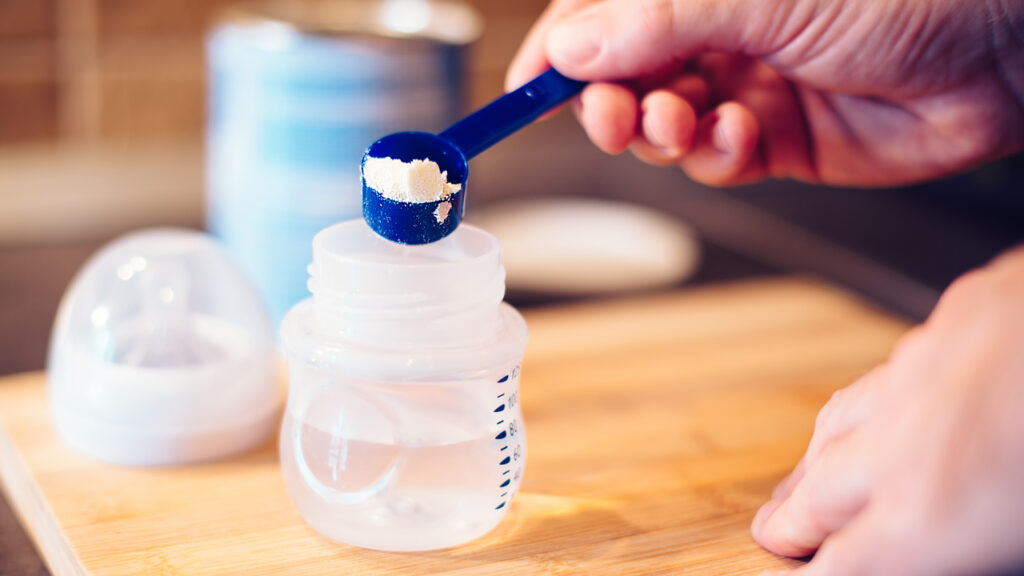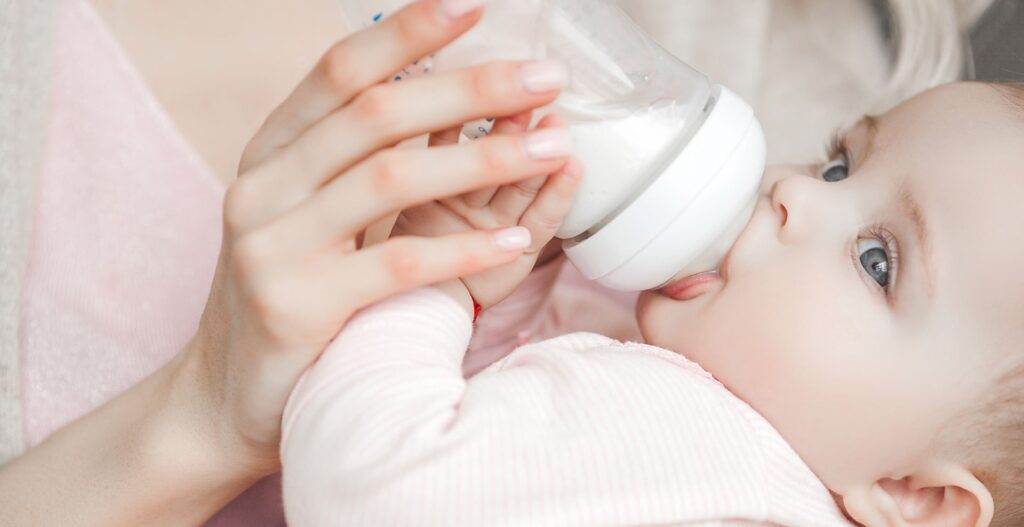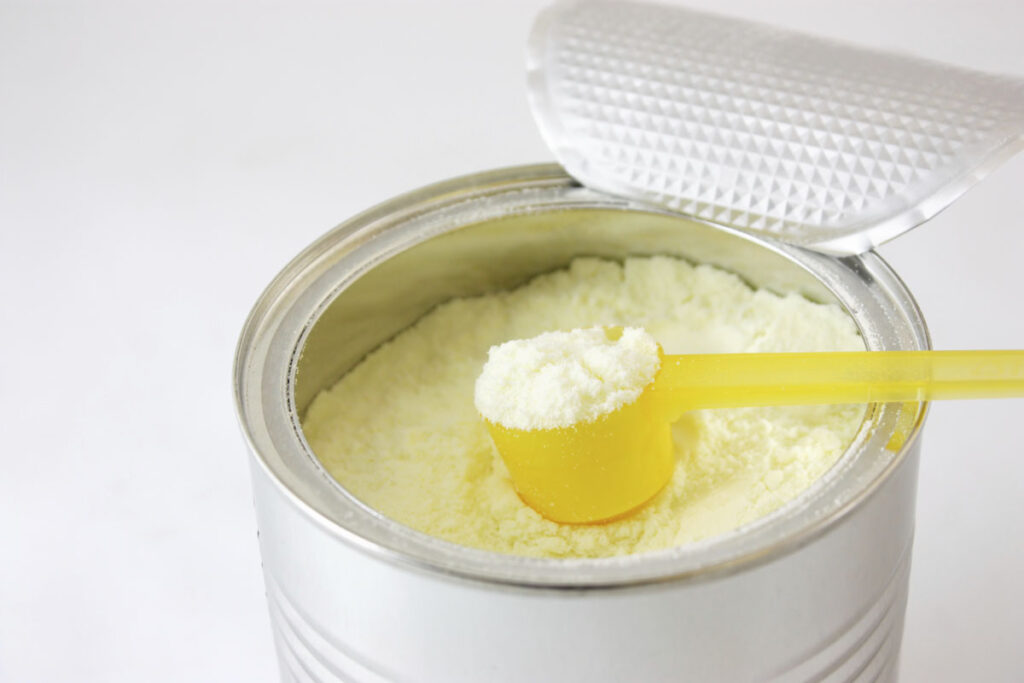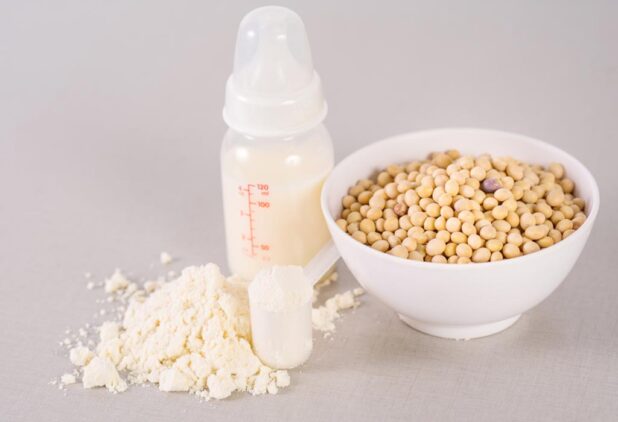As new parents, we decide and plan exactly how we want things to go once we have our little ones. Although, sometimes, things don’t quite go as planned. So then we have to resort to a Plan B if we have one. As we all know, breast milk is always the best nutrition you could ever offer your little one. But like I mentioned before, things can sometimes not go accordingly to plan. And in many different situations, introducing formula to a baby is what ends up being best for both mom and baby.
Table of Contents
Plan B, Introducing Formula?
After initially deciding to introduce formula to your little one, you want to search for the healthiest alternative to breastmilk. An organic formula that has pure ingredients with no fillers or anything that will do more harm than good to your baby would be ideal. Organic European baby formula, such as HiPP Dutch (see here), is known to be with high-quality ingredients with wholesome nutrition that holds strict regulations regarding what’s in your baby’s formula.

This is why so many parents feel confident giving their little ones European formula, because they know that it is sourced from organic farming practices and manufactured without the following: corn syrup, glucose, fructose, rice syrup, sucrose (table sugar), or soy. Your European formula will be free of antibiotics, hormones, genetic modification, and synthetic pesticides, which is always nice to know and keep in mind. European baby formulas are also one of the few baby formulas that offer a natural texture, smell, and taste in mimicking breastmilk.
Choosing European Formula, Great Things You’ll Discover!
When it comes to choosing the right formula for your baby, it can be overwhelming. It can be challenging to know where to begin and which to choose. Each baby is different and has different needs. Some babies could be colicky, struggle with acid reflux, or could be sensitive to lactose. What’s excellent about European formulas is that they offer different options for all babies, even those that might need a more sensible choice. This is great for us as parents because we can provide the best of both worlds to our little ones even if we choose not to breastfeed and supplement with formula.
Some of the European baby formulas today are whole cow milk formulas, skimmed cow milk formulas, and goat milk formulas that contain a different structured lactose than cow’s milk. Goat’s milk provides an alternative for babies that have dairy intolerances.

They also have hypoallergenic (HA) baby formulas, which are ideal for babies that suffer from sensitive stomachs, acid reflux, spitting up, or have allergies and frequent skin rashes. So as you see, there is something for each special little baby.
Another great point you will discover with European formulas is that they are catered into stages; instead of a single system that provides the same nutrition from when your baby is born until they are toddlers. The stages for European baby formulas are the following: PRE, which is specifically designed for premature infants or newborns. Stage 1 is for babies 0-6 months, Stage 2 is for babies 6+ months, Stage 3 is for 10+ months/12+ months, and Stage 4 is a toddler formula for 12-24 months and older.
Each stage of European baby formula is specifically designed and formulated with a balance of fats, proteins, vitamins, and carbohydrates to provide the necessary developmental and nutritional needs that your baby requires to thrive. So there is no need to worry about your little one not receiving the wholesome nutrition they require as they grow and flourish.
Ingredients – things you want to pay attention to!

As an adult, you have had plenty of years to learn about the negative effects of certain ingredients you feed yourself. For example, you know that too much sugar in your diet can lead to many issues like obesity, diabetes, and digestive issues (as processed sugar can destroy the good bacteria in your gut). Knowing this, parents need to be even more cautious about the ingredients they feed their developing babies. This time of their lives is the most important and shapes their future tremendously.
Obviously, breastmilk has all the correct ingredients and there is no need to be concerned about these extra issues, but since we are on plan B, we need to be very cautious. Some ingredients that should be completely avoided include:
- Processed/added sugars: As already mentioned, extra sugars are not healthy for adults, even more so for babies! Natural sugar is necessary in their diet, which is where the lactose in formula makes a huge impact. Added sugars like high fructose corn syrup, glucose syrup solids, sucrose, and fructose are all completely unnecessary additives to baby formula. In fact, European formulas have banned these extras, because studies have proven the negative effects countless times over.
- Preservatives/GMOs: Speaking of processed sugars, preservatives can be just as bad. The reason why we see the use of preservatives is to expand the shelf-life of the baby formula. If you are like many others, you prefer fresher ingredients for yourself, so why not for your baby? As far as GMOs, some baby formulas claim they have no GMOs in their baby formula, which is a good start. But remember, the entire environment needs to be considered when addressing GMOs, just because the animals may not have been fed GMO containing food doesn’t mean that spill-over couldn’t have happened from the pesticides used on nearby farms. The possibility of contamination and spillover is very high on large farms in America, as smaller and local farmers are dwindling. You may find an organic farm placed directly next to a non-organic farm; think of how many chemicals seep into the soil or are spread through the wind!

- Soy: This ingredient in baby products has been highly controversial for years. Most recent studies have proven the harmful effects, especially in reproductive health for both boys and girls. This is due to the phytoestrogens blocking the natural estrogen in girls and adding estrogen for boys. As such, the EU has completely banned soy in their baby products. In America, you will still find this ingredient scattered throughout baby products. Just pick any of them up, it’s likely you will see soy oil or soy lecithin on the ingredients list.
Conclusion
Keep in mind that not all parents can breastfeed or maybe it is simply not an option. Fortunately, a Plan B, like supplementing with European formula, can cover all the bases to provide your baby with the best wholesome nutrition to grow up strong and healthy. Thanks to the latest advances, it is possible to produce high-quality baby milk formulas. Furthermore, European formulas ensure quality ingredients that combine nature’s best.
 World Magazine 2024
World Magazine 2024






